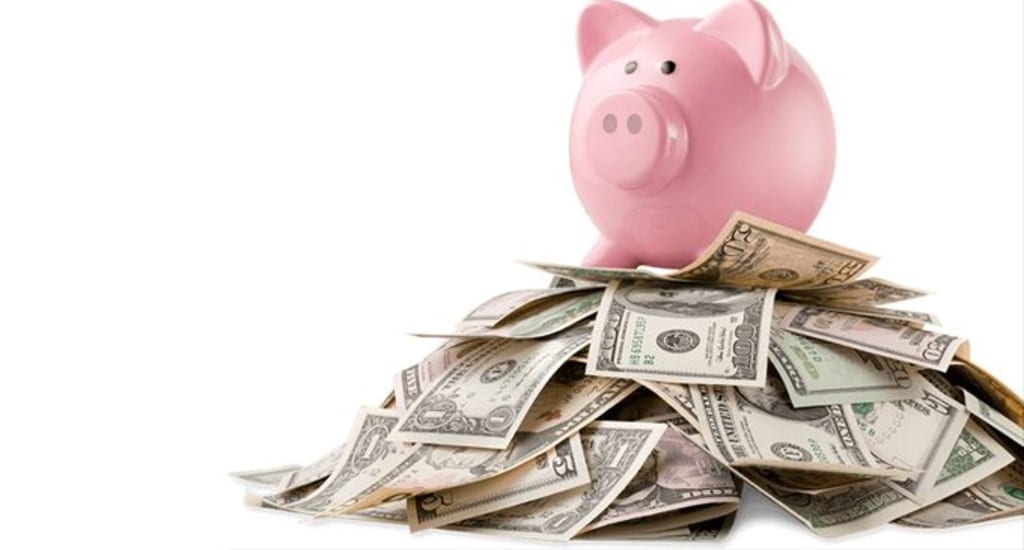5 Ways to Budget Money
How to Budget for a Healthier Financial Future

For a young adult who probably wasn't taught how to in school, saving money can be very hard at times. But saving and budgeting money is not impossible, it just can be very tricky. Most young adults these days were not taught to save or budget money. Here are the do's and don'ts to saving and budgeting money.
1. Build a budget and take control.
So, building a budget is the hard part, especially if you've never had to. The best way is to do it is to calculate your expenses of how much you are spending each month. Start by gathering all bank statements, bills, and receipts. Then calculate the average for six months to a year.
Remember that when adding up expenses it is important to have a realistic budget. A forgotten bill will mess up your savings plan. Also, when calculating bills, it is important to calculate unexpected events, be it a car repair or a doctor's visit. A good tip is always add an additional 10 percent to it.
The next step in this process is after you calculate your expenses to determine your income. Besides your normal income, add in any extra funds that come your way, including cash gifts and sale of items online or via garage sale.
Another great tip is to set debt payoff goals. In order to determine payoff goals, you must first determine wether or not you go over budget or stay under the budget. Do this by subtracting your monthly budget from income. If you are overspending, it is time to do some cutting back in order to avoid going further into debt. The best way to cut expenses is record expenses and track every expense for a month. Once you have a clear understanding of where your money is being spent then cut things out of your budget until your expenses are back on track. Cut enough so you have at least 10 percent of your income left each month. If you are unable to cut a significant amount of money each month you may need to consider ways you can increase your income.
The best ways to stay within your budget is to record your expenses and income. Having to input income will make you consider twice before you splurge on shopping.
2. Save money by spending less.
If you want to save money then you are going to have to develop some healthier habits around money. That means less money.
Look at your monthly spending and determine if there are any areas where you can cut out spending. For example, instead of going out to eat and to a movie, maybe settle for a home-cooked meal and a Netflix marathon instead.
While some big expenses may not be negotiable, you might want to look at all the small expenses. You'll be surprised by how saving a few dollars here and there can save up over time. No, I am not saying to cut out things entirely, but instead of eating out everyday, you can cut it down to once a week. Bring your lunch and cook at home the rest of the week.
3. Automate your savings.
Whether it is normal income or income you get from mowing your neighbor's grass, make certain portions for savings and investments. Make an account to put these funds into and deposit them immediately.
Another good idea is to also save your tax refund. If your account already has six to 12 months of expenses consider plugging your tax income into it as well for emergency expenses. Regularly deposit into savings.
Automating your savings can turn into another monthly expense. This can also help you make your savings a priority by reducing the temptations of spending money. Having it automated makes sure you do not forget to put money back. It's like making a commitment to add to your savings account a little each month.
4. Pay yourself 10 percent first.
If you're going to save money, you must first rearrange your attitude around money. The phrase, "Don't spend what is left after spending, but rather spend what is left after saving" is a good phrase to follow. This means make saving your number one priority. This also means put up money before paying any other bill. If you set aside 10 percent of your check before saving your bills then every time you get paid you will always have money. There are always ways to save money: Couponing, thrift stores, etc., but setting back money every paycheck is the best way to reach a a financial goal.
5. Make saving a top priority.
There is no time like now to start saving money. The sooner you start saving, the more money you will have in your savings account. Saving money might sound like something that is negotiable, but it's a huge step in your financial health. Taking your time to understand, learn, and develop your financial backbone is an important part of your financial well-being.
The Top 3 Priorities for Saving
When it comes to an emergency fund, retirement funds, or even funds to pay off things like student loans, it can be very confusing—and to actually find out where to start saving can be even harder. The main thing to remember is that it all depends on your financial well-being on where and how to start. Most people can agree on one thing for sure, and that following these, in no matter what order you choose, are the three most important priorities when it comes to saving.
A. Emergency Fund
You have to have an emergency fund in case you end up unemployed, get sick, or have another major financial emergency. It would be wise to have at least six months of income stored in savings, but that is not always easy to do. On average, you should have enough in the bank to sustain you until you can get back to work or find another job. The most important thing is your fund should always be in cash or the equivalent to cash. It should not be in real estate or investments. Your savings should always be easy accessible.
B. Retirement Fund
Social security might bring in some income, but for most they will need more. You should save at least 15 percent of your income and put it towards retirement. If you are older and need to save more, but your 401k is already maxed out, you can put the money towards your IRA. If you have already maxed out all your requirements then you could invest in a tax efficient index fund. You will not get all the benefits of a retirement account, but the tax efficient fund is more tax efficient.
C. Debt-Repayment
This is the tricky part. If you have $10,000 on a high interest credit card, this would be considered your main priority when it comes to saving. If this is the case, you should put up $1,000 in savings for emergency and put less up for retirement and focus on repaying your debt.






Comments
There are no comments for this story
Be the first to respond and start the conversation.